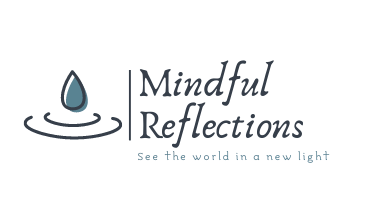Your Birth Didn’t Go as Planned—How Do You Reconcile?
A common piece of advice when preparing to give birth is to plan how the delivery is going to go. You could have done all the research in the world and have been very careful about your planning, but that doesn’t mean your birth will have happened the way you wanted it to. Due to events entirely outside our control, we sometimes end up giving birth in an entirely different way than we planned.
Did you feel sad when your birth didn’t go as planned? Hurt, or guilty maybe? If so, that’s okay. It’s normal to struggle with yourself when your birth experience doesn’t match what you originally planned. It can be difficult to get over, too, when you don’t know how and when people around you tell you to be grateful if your baby is healthy in the end.
But how you feel about it is important too.
Take Your Time
Giving birth is a difficult process. Your body gave birth to a child, a new life, and that’s not a minor task. It needs time to recover from the experience, and it’s important you give it the time and space to do so.
Similarly, a birth gone different from planned is a big deal for you, emotionally speaking. And, if you’re making sure to give yourself time to physically recover, why wouldn’t you also give yourself time to recover emotionally?
Sometimes, births that don’t go as planned can be quite traumatic. Whatever feelings you may get from the experience won’t disappear overnight. It’s a process to heal from it all, and it’s important to give yourself time to do so.
Set Boundaries
Sometimes, even well-meaning friends and family can end up hurting you. Especially when surrounded by so many different ideas about what an ideal birth looks like. Maybe they think it’s a shame you didn’t give birth in the way they were thinking of, or they might berate you for expressing any feelings of sadness or disappointment over how your birth went.
If you need to, don’t be afraid to set up boundaries. You don’t need to be surrounded by constant negativity while you recover from a difficult ordeal. This is another important way in which you can take care of yourself while you recover.
Be Honest with Yourself
It might be tempting to ignore how you feel about the birth, especially if you feel sad or guilty or disappointed in both the birth and yourself. It might be tempting to try to focus on how grateful you are that your baby is healthy instead of how disappointed you feel about your birth experience. But, don’t you think that it’s possible to both be grateful for your baby and disappointed about how it all went? These aren’t mutually exclusive sentiments.
Let yourself feel your emotions. Don’t judge yourself for whatever you may feel. If you don’t accept your emotions, they’re just going to fester inside you and slow down your healing process. Being sad or disappointed or guilty or ashamed doesn’t make you a bad parent. It just makes you human, a person with expectations who is learning how to let go and adjust to the new reality. And it’s possible to get there. But letting yourself feel your emotions is an important part of that process.
Reach Out for Help
If you find yourself needing to rely on others to get through this period, that’s perfectly normal. You’re not weak for needing other people. We all need others to get through difficult times. Talk to people you trust about what happened, about what your plans were and how your birth actually went. Find a support group, if you think that might help you.
Most importantly, seek professional help if you need it. Births that don’t go as planned, especially when they’re traumatic, may leave you needing additional help. And that’s perfectly fine. That’s what we’re here for. So, don’t hesitate to make an appointment. You’ll be okay in the end.
To learn more about how Mindful Reflections can help, check out our Birth Trauma Therapy page.
Previous Posts
Complete Guide to Postpartum Depression
You are not alone.If you’ve found your way here, it’s likely that you — or someone you deeply care...
Can You Have Postpartum Depression After Miscarriage?
Miscarriage is a profound and often isolating experience. For many, the emotional impact is deeply...
Postpartum Therapy for C-Section Recovery: Emotional Healing Beyond the Physical
For many mothers, a C-section can feel both miraculous and overwhelming. While the physical scars...





